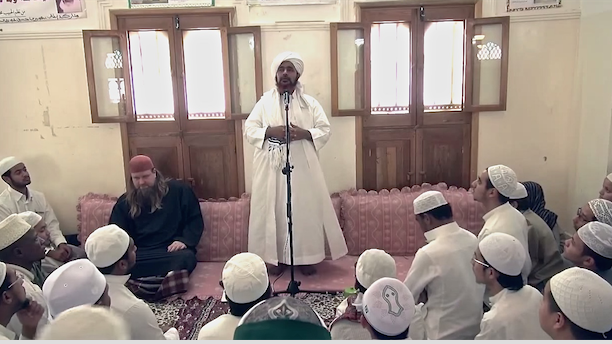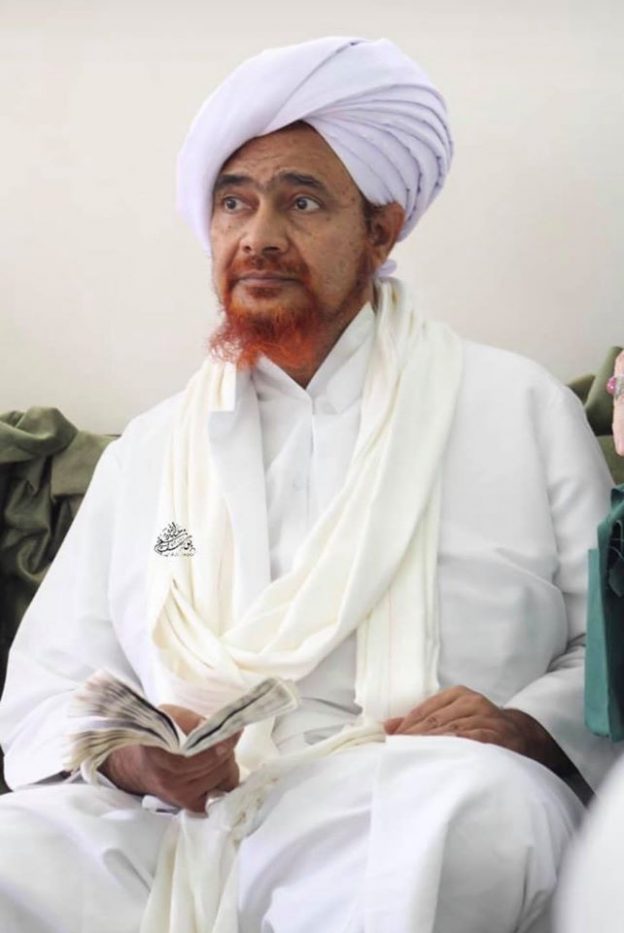This prayer is taken from Sayyidi Habib Umar bin Hafiz’s collection of prayers using Allah’s beautiful names in which he calls upon Allah by His beautiful names and then asks Him to bestow prayers upon His Beloved by those names. Finally, he asks Allah for a portion of those attributes which belong to Allah and which He has bestowed upon His Messenger ﷺ.
اللَّهُمَّ يا اللهُ يا مُقَدِّمُ صَلِّ على عَبْدِكَ و حَبِيبِكَ سَيِّدِنا مُحَمَّدٍ النَّبِيِّ المُقَدَّمِ و على آلِهِ و صَحْبِهِ و سَلِّمْ تَسْلِيماً وقَدِّمْنِي بِهِ في مَرَاتِبِ العُبُودِيِّةِ و الطَّاعَةِ لَكَ تَقْدِيماً
O Allah, the One who gives precedence to some over others, bestow abundant prayers and peace upon Your slave and beloved, our Master Muhammad, the Prophet who has been given absolute precedence, and upon his Family and Companions, and by him give me precedence in the stations of servitude and obedience to You.







